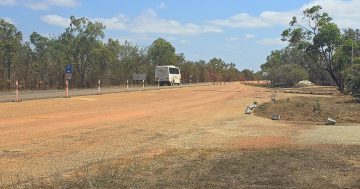David Bell* says that while it’s not high on the priority list now, super funds will have to start looking at retirement outcomes in the near future.
 So much can be done to improve outcomes for retirees, yet it feels the rate of progress is glacial.
So much can be done to improve outcomes for retirees, yet it feels the rate of progress is glacial.
This adds to the challenges faced by retirement specialists in the super industry.
Beyond known challenges in areas such as modelling, data, and engagement, add temperament and stakeholder management.
Temperament to maintain a positive attitude in a sector which is slow to progress and stakeholder management to continue championing the positive case for executive teams and boards to prioritise retirement solutions and improve member retirement outcomes.
Widening gap
Lately the gap between the possible and the present state has become a chasm.
To illustrating the possible, I recently attended a seminar by Professor Michael Sherris, a recognised academic leader in retirement research.
Sherris is leading a new research group focused on the integration of healthcare and aged care solutions into retirement planning.
In doing so they are shifting their agenda away from traditional retirement outcome research (products, solutions, and risk management).
An idea like this feels a generation away for Australia.
Unfortunately industry structure, regulation and engagement frameworks are not really set up to address this challenge.
New research directions haven’t benefitted consumers
When asked about reasoning for the change in research agenda, Sherris’ answer was enlightening.
There has already been significant attention (about five decades) on these traditional retirement research subjects and the marginal returns on new research are modest.
In contrast the opportunity to identify significant consumer and societal benefits in this new research direction is far greater.
The message for retirement outcome specialists is hardly new: from a research perspective (where academia leads industry) much has already been achieved in the traditional areas of retirement outcome research.
All this research is available to industry.
Yet very little of this research has found its way into innovations which benefit consumers (with some notable exceptions like QSuper’s Lifetime Plus product).
Retirement income covenant
To illustrate the present state, I recently read reflections on the Retirement Income Covenant (RIC) by David Knox.
Amongst various opportunities, Knox highlighted the benefits of providing calculators and member retirement income projections.
Knox is pointing out things, it could be argued, are services any superfund in an ideal world would already have.
After all ASIC’s class order relief on projections came into force in late 2014.
Knox is an industry leader recognised globally with strong research linkages into academia (coincidentally he is also at the forefront of advocating for the integration of healthcare and aged care considerations into retirement solution design).
More than most, he is aware of the possible, yet the next steps he advocates for appear to be pragmatically small ones.
Why the slow pace of change?
So why are things moving so slowly that the gap between the possible and the present state is so large? We have an RIC which is heavily principles-based to provide the flexibility that industry craves.
In my mind there are two reasons.
The first is policy: unfortunately, in my view, present retirement income policy won’t succeed unless there are further significant changes.
The largest policy gap is the delivery mechanism: how funds, given the present legal and regulatory environment for financial advice, can match their members to appropriate retirement solutions.
If this shortcoming remains unaddressed, it is difficult for funds to justify and prioritise the business case for developing these solutions.
The second is the current priorities of the super industry.
While retirement outcomes are important, for most funds issues like viability and scale, distribution model, and investment model rate higher in the present policy and regulatory settings.
Retirement solutions is a large complex area requiring a whole-of-fund effort.
This won’t happen successfully until it becomes a high priority.
Significant potential
So where does this leave retirement specialists in the super sector?
They can see the significant potential for better retirement outcomes but realistically find their work down the priority list.
Temperament is important, accepting that, like it or not, this is a slow-moving space.
Temperament underpins the ability to maintain positive advocacy, presenting the opportunities to improve member outcomes.
At some point, with further policy development and regulatory nudging, retirement outcomes will become high priority for the super industry.
And that is the exciting point where the possible starts to become the actual.
*David Bell is the executive director of the Conexus Institute. Bell is the former chief investment officer of Mine Super and oversees the Sydney-based think-tank’s work.
This article first appeared at investmentmagazine.com.au.











